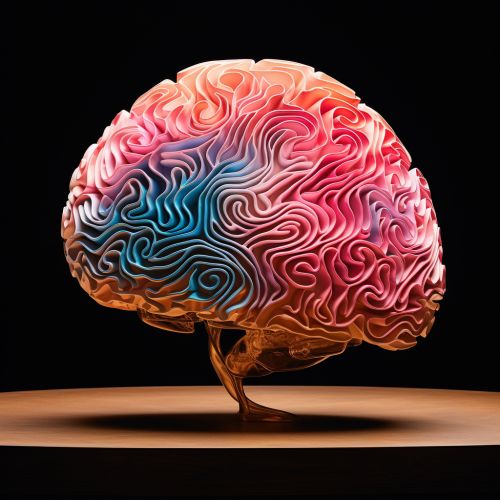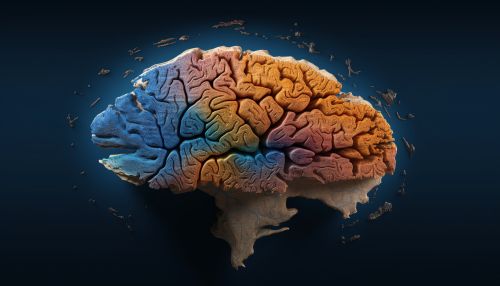Cognitive Neuroscience of Cognitive and Motor Recovery
Introduction
Cognitive neuroscience is a branch of neuroscience that explores the biological processes that help us to understand the complex aspects of cognition. This field combines the principles of neuroscience, psychology, and cognitive science to analyze how individuals perceive, think, and respond. The cognitive neuroscience of cognitive and motor recovery focuses on understanding how the brain recovers and reorganizes itself after a traumatic event or injury that affects cognitive and motor functions.


Cognitive Neuroscience
Cognitive neuroscience is a multidisciplinary field that incorporates aspects of psychology, neurobiology, computer science, linguistics, and philosophy. It seeks to understand how human cognition is represented in the brain and how cognitive processes are executed in the brain. This understanding is crucial for the development of effective strategies for cognitive and motor recovery.
Cognitive Processes
Cognitive processes are the mental functions that allow us to receive, select, store, transform, develop, and recover information from our environment. These processes include perception, memory, attention, language, decision-making, and problem-solving. Cognitive neuroscience investigates these processes at the level of neural circuits and systems.
Neural Plasticity
A key concept in cognitive neuroscience is neural plasticity, also known as neuroplasticity. This is the brain's ability to reorganize itself by forming new neural connections throughout life. Neuroplasticity allows the neurons (nerve cells) in the brain to compensate for injury and disease and to adjust their activities in response to new situations or to changes in their environment. This concept is central to understanding cognitive and motor recovery.
Cognitive and Motor Recovery
Cognitive and motor recovery refers to the process by which individuals regain cognitive and motor functions that have been lost or impaired due to brain injury or disease. This recovery process is influenced by a variety of factors, including the severity and location of the brain injury, the individual's age and health status, and the timing and type of rehabilitation interventions.
Cognitive Recovery
Cognitive recovery involves the restoration of cognitive functions such as memory, attention, language, and executive functions. This recovery process can be facilitated by cognitive rehabilitation, a therapeutic approach that uses specific, graded tasks designed to reinforce or reestablish previously learned patterns of behavior, or to establish new patterns of cognitive activity through compensatory cognitive mechanisms.
Motor Recovery
Motor recovery refers to the restoration of motor functions such as movement and coordination. This recovery process can be facilitated by physical therapy and other rehabilitation interventions that aim to restore motor function and improve quality of life. Motor recovery is often associated with neuroplastic changes in the brain, which can be influenced by factors such as the intensity and type of rehabilitation interventions.
Mechanisms of Cognitive and Motor Recovery
The mechanisms of cognitive and motor recovery are complex and involve multiple processes, including neural plasticity, neural regeneration, and learning and memory processes.
Neural Plasticity and Recovery
Neural plasticity plays a crucial role in cognitive and motor recovery. Following a brain injury, the brain can reorganize its structure, function, and connections in response to the injury. This reorganization can lead to the recovery of cognitive and motor functions. For example, if a brain region responsible for motor control is damaged, other regions of the brain can take over the functions of the damaged region, leading to motor recovery.
Neural Regeneration
Neural regeneration refers to the process by which new neurons or neural connections are formed in the brain. This process can contribute to cognitive and motor recovery by replacing lost or damaged neurons and by enhancing neural connectivity and function.
Learning and Memory Processes
Learning and memory processes are also involved in cognitive and motor recovery. These processes can facilitate recovery by enabling individuals to learn new cognitive and motor skills, to adapt to changes in their environment, and to remember and apply these new skills and adaptations.
Strategies for Enhancing Cognitive and Motor Recovery
Several strategies can enhance cognitive and motor recovery, including cognitive and physical rehabilitation, pharmacological interventions, and neurofeedback training.
Cognitive and Physical Rehabilitation
Cognitive and physical rehabilitation are key strategies for enhancing cognitive and motor recovery. These rehabilitation approaches involve structured, repetitive practice of cognitive and motor tasks, which can promote neural plasticity and improve cognitive and motor functions.
Pharmacological Interventions
Pharmacological interventions can also enhance cognitive and motor recovery. These interventions can promote neural plasticity and regeneration, reduce neural inflammation and damage, and improve cognitive and motor functions.
Neurofeedback Training
Neurofeedback training is a non-invasive intervention that uses real-time displays of brain activity to teach self-regulation of brain function. This training can enhance cognitive and motor recovery by promoting neural plasticity and by improving cognitive and motor performance.
Conclusion
The cognitive neuroscience of cognitive and motor recovery provides valuable insights into the mechanisms of recovery and the strategies for enhancing recovery. This field has the potential to improve the quality of life for individuals with brain injuries and diseases, and to advance our understanding of the human brain and cognition.
